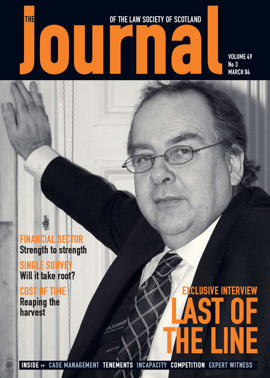A first-rate presentation
It is one of life’s simple truths that those who prepare generally achieve more than those who don’t. Delivering a presentation is no different.
The cardinal principle is: begin your preparation as early as you possibly can.
Many people, usually through pressure of chargeable time, do not start preparing until the deadline looms. Even if you are busy, spend a few minutes whenever you can thinking about your talk. Ideas will start to form; some of your best ones will come into your head when you are not consciously thinking about the speech.
Begin with the end result in mind. Before investing time in preparation, ask yourself these questions:
What is the precise title for your talk?
Is your overall purpose to (i) educate, (ii) persuade, (iii) entertain or (iv) sell?
Within that purpose, what is your tangible objective?
Who exactly is your audience?
Where and when is the talk?
What equipment, if any, is available?
Are any particular formalities expected of you?
By answering these, you are giving yourself something more concrete to focus on.
The five stages of preparation
There are five key stages to go through to produce an optimum talk:
- Creative thinking
- Research
- Analysis
- Organisation
- Practice
This system was developed during a period when the author was involved heavily in impromptu debating and interim interdict hearings. It is even more effective when the speaker has longer to prepare.
Stage 1 – creative thinking
This is popularly known as “brainstorming”. Sit down with a single blank sheet of paper. Write down everything that immediately comes into your head relating to your topic. Do not stop to analyse. If you prefer, use a dictaphone. At this stage you are looking for themes, facts, stories, concepts, and examples.
Note that personal examples and anecdotes are the components that will make your talk original, even on an esoteric legal subject. If time allows, get a companion involved. You will be amazed by the quality of the material you reap simply bouncing ideas off each other.
This phase is the one most people neglect. As a result, many otherwise competent presentations are simply not original or interesting. The consequence is invariably an audience that fails to listen.
Stage 2 – research: Solicitors are good at research, so little explanation is required here. Get as much accurate material as you can on your subject – from books, journals, experts, newspapers, the internet etc. Add it to your creative material.
One word of warning: if your colleague did a similar presentation a few months ago, do not just use their slides. While it is inefficient to re-invent the wheel, you must assert your own thoughts on the talk.
Stage 3 – analysis: This is where you sort the wheat from the chaff. First, review the material in a ruthless manner, asking “Do I want to use this?” This often results in 50% being discarded. Then review the surviving material and draw out the best parts. A key overall theme will usually emerge.
Stage 4 – organisation: Every presentation has a number of main points, which relate back to the key theme. Let’s assume your talk has three main points. Take three pieces of blank paper. On each, write down one main point as a heading. Go through the surviving material, allocating each fact/point/example to one of these points. Then take the sheet with the first main point and put all the material in a logical order – for example, main point, sub-points, facts, examples, stories, link to next point. Do this with each sheet in turn. You will then have the first rough draft of your speech.
Doing a re-draft or two is a very good idea if you have time, but don’t write out the speech word for word – just a series of headings under each main point will give the speech a more natural, spontaneous feel to it.
Stage 5 – practice: Once the material and structure are complete, you need to practise. Some advocates call this “getting the speech into the groove of your mind”. Practise until you are familiar with the material – just don’t let it become stale. Some people use a tape recorder, others live volunteers. The mirror is another favourite. The best advice is to practise in as many settings as time allows.
One final tip – practise at least once without notes. You will be surprised how much you recall. This will also give you the confidence to soldier on if you lose your notes or PowerPoint breaks down during the actual presentation!
In itself, preparation is not the most rewarding of tasks. However, in the wise words of the philosopher Confucius:
“In all things, success depends upon previous preparation, and without such preparation, there is sure to be failure.”
In this issue
- Consumers and their guardians
- For the United Kingdom?
- Law meets its maker
- Falconer's safe landing
- Competition and the solicitor
- Flying the flag in finance
- Last piece of the jigsaw
- A good year for most firms
- System addicts
- Putting theory into practice
- The corporate challenge
- Make money out of IT
- A first-rate presentation
- The usual experts?
- Obituary: David Stewart Williamson
- Pearls of wisdom
- Work in progress
- The quality assurance scheme
- Fair hearing with prior knowledge?
- Scottish Solicitors' Discipline Tribunal
- Managing the timetable
- Are landlords' fears justified?
- Caps the stars don't want
- Website reviews
- Book reviews
- Best foot forward?
- The new law of real burdens






